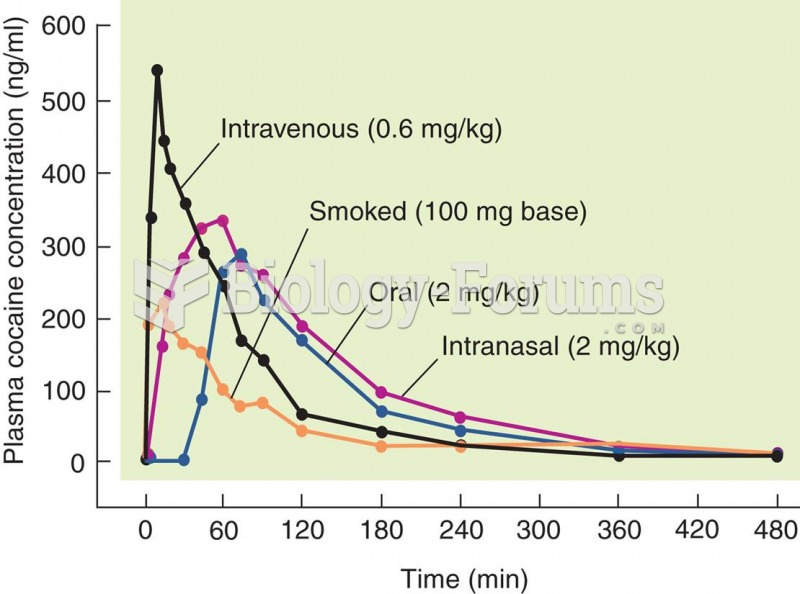|
|
|
Did you know?
An identified risk factor for osteoporosis is the intake of excessive amounts of vitamin A. Dietary intake of approximately double the recommended daily amount of vitamin A, by women, has been shown to reduce bone mineral density and increase the chances for hip fractures compared with women who consumed the recommended daily amount (or less) of vitamin A.
Did you know?
The FDA recognizes 118 routes of administration.
Did you know?
The longest a person has survived after a heart transplant is 24 years.
Did you know?
Women are 50% to 75% more likely than men to experience an adverse drug reaction.
Did you know?
Atropine, along with scopolamine and hyoscyamine, is found in the Datura stramonium plant, which gives hallucinogenic effects and is also known as locoweed.







